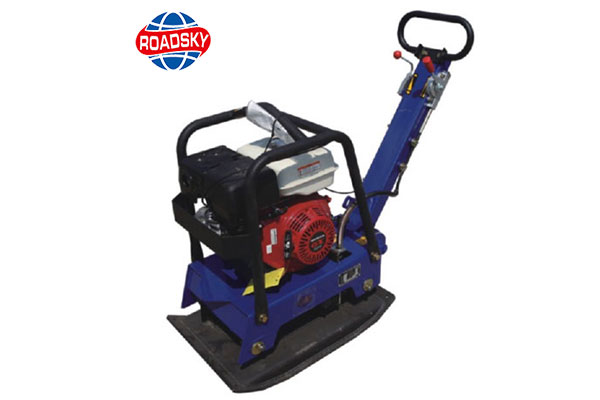Asphalt Plate Compactors: A Comprehensive Guide
When it comes to achieving a smooth and durable asphalt surface, the asphalt plate compactor emerges as a crucial tool in construction and roadwork projects. This compact yet powerful machine plays a pivotal role in ensuring the longevity and quality of asphalt surfaces. In this article, we will delve into the key knowledges for using an asphalt plate compactor.

What are Asphalt Plate Compactors?
An asphalt plate compactor, also known as a vibratory plate compactor, is a versatile piece of equipment designed to compact various materials, with a primary focus on asphalt. This compacting process involves eliminating air voids within the asphalt mixture, resulting in a denser and more stable surface. These compactors are widely used in road construction, driveway installation, and other paving projects.
Types of Asphalt Plate Compactors:
There are various types of plate compactors, including reversible and single-direction models. Reversible compactors are versatile, allowing the operator to change the direction of the machine’s movement, making them ideal for tight spaces. Single-direction compactors are straightforward and more suitable for open areas.
Key Features:
- Vibratory Mechanism: Asphalt plate compactors use a vibratory mechanism to generate high-frequency vibrations, allowing for effective compaction of the asphalt mixture.
- Plate Size and Shape: The size and shape of the compactor’s plate are crucial factors. Larger plates cover more surface area, reducing the number of passes required for compaction. The shape of the plate also influences the compaction efficiency.
- Engine Power: The engine power of an asphalt plate compactor determines its ability to handle different types of asphalt mixes and achieve the required compaction density.
Benefits of Asphalt Plate Compactors:
- Improved Durability: Proper compaction with an asphalt plate compactor ensures a more durable asphalt surface by minimizing the risk of premature wear and damage.
- Enhanced Stability: Compacted asphalt surfaces exhibit greater stability, reducing the likelihood of settlement or deformation over time. This is particularly important in high-traffic areas.
- Time and Cost Efficiency: Asphalt plate compactors facilitate faster project completion, as their efficient compaction process reduces the need for additional materials and maintenance.
Best Practices for Using Asphalt Plate Compactors:
- Proper Plate Positioning: Ensure the compactor’s plate is level and parallel to the ground during operation to achieve uniform compaction.
- Optimal Speed and Passes: Adjust the speed of the compactor based on the asphalt mix and project requirements. Multiple passes may be necessary to achieve the desired compaction density.
- Regular Maintenance: Regularly inspect and maintain the compactor, including checking for loose bolts, ensuring proper lubrication, and addressing any issues promptly to maximize its lifespan and performance.
Conclusion:
In the world of asphalt construction, the asphalt plate compactor stands as an indispensable tool for achieving superior compaction and durable surfaces. Understanding its key features, benefits, and best practices is crucial for optimizing its performance and ensuring the success of your paving projects. Investing in the right asphalt plate compactor and following proper compaction techniques contribute to the longevity and performance of asphalt surfaces, ensuring the satisfaction of both builders and end-users alike.
Where to Get Quality Asphalt Plate Compactors?
RoadSky is a professional manufacturer and supplier of asphalt plate compactors with numerous product models to meet the different needs of customers. If you are looking for asphalt plate compactors for your project, you can contact us directly for more information.

